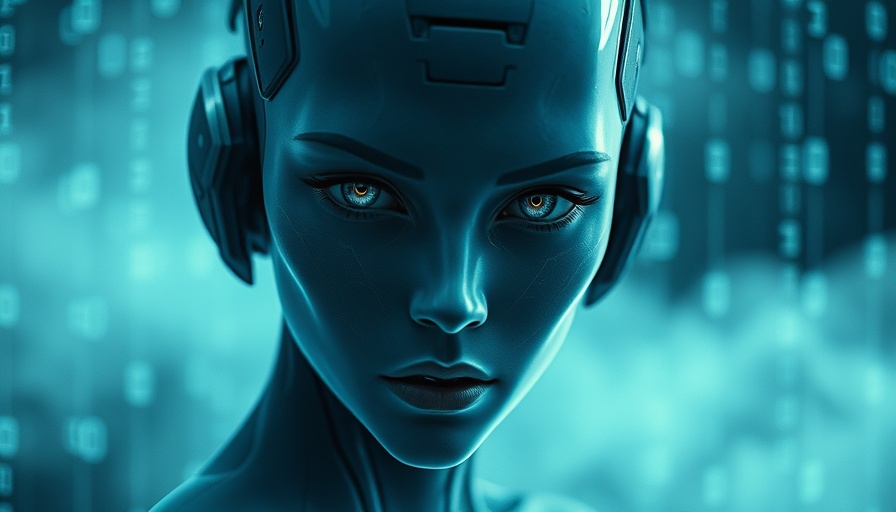
The Future Beyond Capitalism: Could AI Shape Our Lives?
What comes after capitalism? This question is no longer theoretical; it’s becoming increasingly urgent as we explore how the world could change in profound ways thanks to the rise of technologies like AI, blockchain, and renewable energy. In the enlightening video titled 10 Ways Your Life Changes After Capitalism Ends, we find stimulating ideas about potential futures that await us, from a post-scarcity society to the emergence of new economic structures. Let’s delve deeper into these insights and explore what they might mean for us.
We came across 10 Ways Your Life Changes After Capitalism Ends, which covers how AI may reshape our lives in an exciting yet complex future, and it raised compelling points that we’re expanding on in this article.
Embracing a Post-Scarcity Society
Imagine a world where essential resources like food, housing, and healthcare are abundant and virtually free. In a potential post-scarcity society, advanced technologies could eliminate the need for human labor in many areas, as AI manages everything from agriculture to transportation. While this sounds utopian, it's crucial to recognize that abundance does not automatically lead to fairness. Who controls this wealth? Without transparent governance, issues of access and power could remain entrenched, raising important questions about equity in this new landscape.
Decentralized AI Economies: A New Paradigm
As we envision a world without capitalism, decentralized AI governed economies could take center stage. These systems rely on blockchain and autonomous networks to distribute resources without the overreach of corporations. However, the challenge lies in trusting these algorithms to make decisions that affect our lives. While they promise efficiency and transparency, creating a system where accountability and fairness reign is vital. How do we ensure that these decentralized systems truly serve collective needs without falling prey to manipulation?
The Looming Threat of Technofudalism
Interestingly, the end of capitalism could lead to a resurgent hierarchy known as 'technofudalism.' Instead of being free from power structures, we could find ourselves under the control of a select group of tech elites. If advanced technologies congregate power within tech platforms, the result could be a new form of feudalism, where users are beholden to platforms for essential services. Maintaining individual autonomy while navigating these complex ecosystems will be a pressing challenge.
Universal Basic Income: A Necessity or a Crutch?
One idea gaining traction in discussions about life beyond capitalism is Universal Basic Income (UBI). In this scenario, every person would receive a guaranteed income to meet their fundamental needs. This shift could liberate individuals from the pressure of traditional economic roles, allowing them to focus on personal growth and community involvement. However, if not carefully managed, UBI might lead to inflation or foster resentment among individuals who feel its benefits are inequitably distributed.
The End of Corporate Abuse
One optimistic outcome of transitioning away from capitalism is the potential dismantling of corporate power. For decades, large corporations have exploited labor and harmed the environment with impunity. A post-capitalist system could prioritize public needs over profit, leading to an era of transparency and accountability. Yet, eliminating corporate abuse does not automatically bring about a just society. Without robust oversight, the risk exists that power could simply shift to another group.
Redefining Ownership in the Future
Could we move towards a world where private ownership gradually becomes obsolete? As AI takes on resource management, models based on access and cooperation could emerge in place of traditional ownership structures. While this could enhance equity by making essential services universally available, many might struggle with the emotional implications of losing personal possessions. Redefining security and identity in such a landscape will be crucial as we navigate these changes.
Exploring the Impact on Innovation and Entrepreneurship
The role of entrepreneurs in a post-capitalist world may drastically shift. Without the market-driven incentives of capitalism, individuals might no longer feel compelled to start businesses. With resources managed collectively by AI systems, innovation could become a shared effort rather than a personal pursuit. While this cooperative model has the potential to reduce exploitation, it also risks stifling the creativity that drives progress.
The Transformation of Media and Messaging
Additionally, we may see corporate advertising dissolve and be replaced with government messaging. This change could reduce materialism but risks creating a controlled narrative driven by a single voice. Public discourse and the diversity of thought might suffer if dissenting views are curtailed. It raises essential questions about who controls the narrative and what that means for our future.
Conclusion: Rethinking Our Future
As we reflect on these ten transformative possibilities for life beyond capitalism, it becomes clear that while the changes could offer immense benefits, they also present substantial challenges that must be addressed. By exploring these topics in depth, we prepare ourselves for a partnership with technology that should amplify our values rather than diminish them.
Discover and subscribe to Future Business Tech now.
 Add Row
Add Row  Add
Add 




Write A Comment